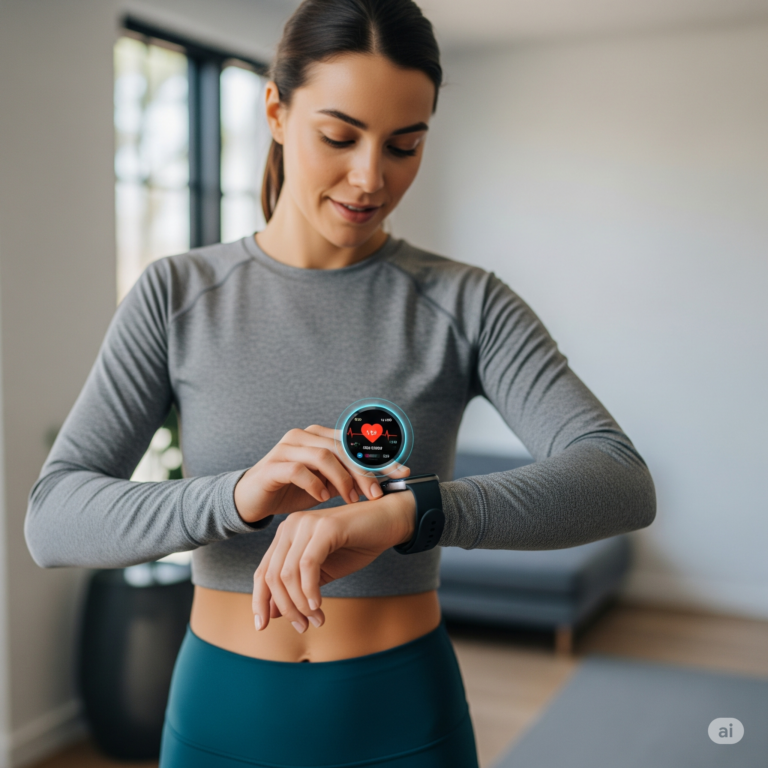- How AI-Powered Wearables Are Revolutionizing Personal Health in 2025
How AI-Powered Wearables Are Revolutionizing Personal Health in 2025
Published on June 15, 2025
By [ TechAI230.com ]
🧠 Introduction: The Rise of AI-Powered Wearables in Personal Health
AI-powered wearables are no longer just fancy step counters. In 2025, they’ve become mini health labs on our wrists — tracking our vitals, predicting potential diseases, and even detecting early signs of mental health issues. From smartwatches to health rings and even AI-embedded clothing, wearable tech is transforming personal healthcare like never before.
⌚ What Are AI-Powered Wearables?
AI-powered wearables are smart devices equipped with sensors and artificial intelligence algorithms that track your health in real time. These devices collect and analyze data like:
- Heart rate variability
- Blood oxygen levels
- Sleep cycles
- Stress patterns
- Blood glucose (non-invasive!)
🌐 The Key Difference? Real-Time AI Insights
Unlike traditional fitness trackers, these devices don’t just collect data — they interpret it using AI. This means instant feedback, early warnings, and personalized recommendations 24/7.
❤️ How AI-Powered Wearables Are Saving Lives
🫀 Predicting Heart Issues Before They Happen
Devices from Apple, Fitbit, and Withings now use machine learning to detect irregular heart rhythms and predict cardiac events before symptoms appear — alerting users and healthcare providers in real time.
🧠 Fact: In 2025, AI-enabled smartwatches have already helped prevent thousands of strokes and heart attacks globally.
🧠 Spotting Mental Health Red Flags
AI now analyzes voice tone, sleep irregularities, and even typing patterns to detect:
- Depression
- Anxiety
- Burnout
- PTSD symptoms
This means mental health care is becoming more proactive and less stigmatized.
📊 AI Wearables and Chronic Disease Management
💉 Real-Time Glucose Monitoring for Diabetics
The new generation of wearables offers non-invasive blood glucose tracking, allowing diabetics to monitor their levels without finger pricks. AI provides smart alerts, dietary advice, and insulin predictions.
🦠 Managing Long COVID, Asthma, and More
For patients with ongoing conditions, wearables offer continuous monitoring — flagging danger signs and syncing with telemedicine apps for immediate action.
🧩 Challenges of AI-Powered Wearables
While revolutionary, AI wearables face several challenges:
- Data privacy concerns
- Battery limitations
- Over-reliance on algorithms
- Accessibility and affordability in developing regions
Governments and tech companies are now collaborating to create clear regulations and ethical standards.
🚀 Final Thoughts: The Future of AI-Powered Wearables
By 2030, we could see wearables that:
- Detect cancer biomarkers through sweat
- Continuously analyze emotions
- Link directly to AI doctors or clinics in the cloud
- Replace regular hospital checkups
The fusion of AI and wearable tech isn’t just innovation — it’s a health revolution that’s giving people more control over their lives and well-being.
🧠 Key Takeaways
- Artificial Intelligence-powered wearables analyze health data in real time
- They improve early detection of diseases and mental health issues
- Chronic disease management is now more personalized
- Challenges include data privacy and equitable access
- The future of health is on your wrist


